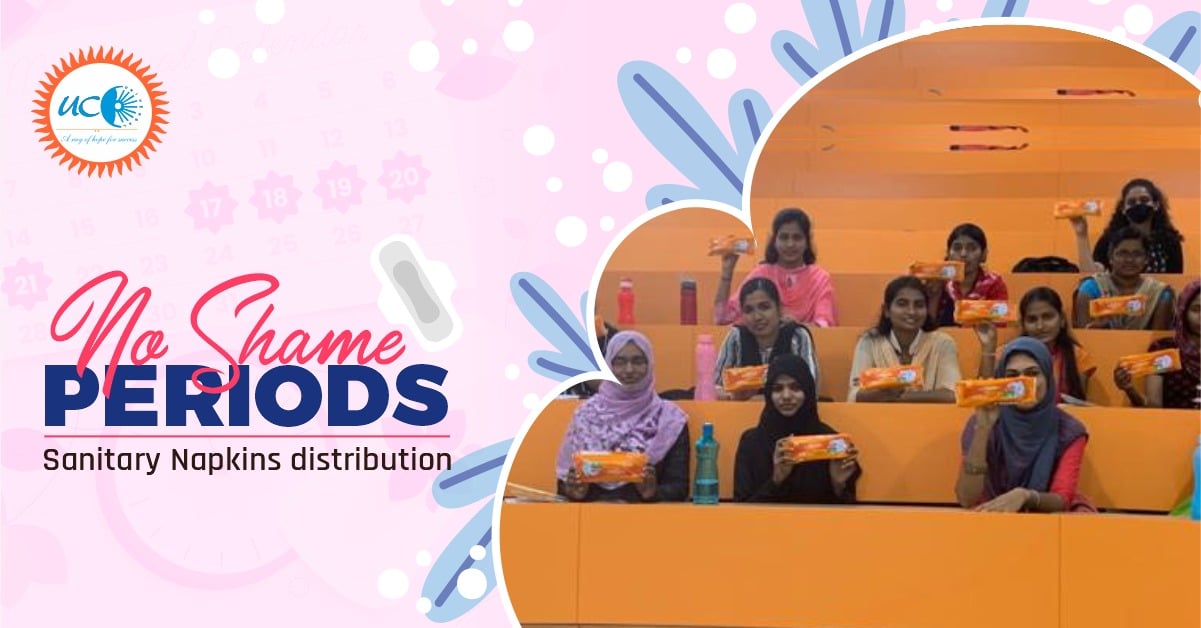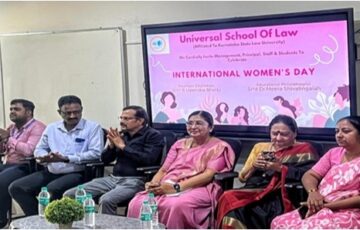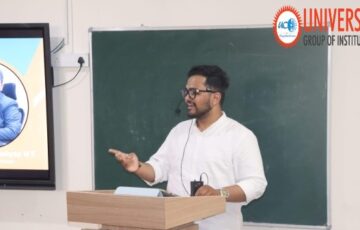No Shame Periods
Talking about periods has often been taboo especially in a country like ours. It is high time that we eradicate period shame and period poverty. The stereotype around periods is not just limited to remaining mute during our science (biology) class in school, but it is also reflected in how many women still are not nurtured about maintaining period hygiene. It is high time for us to not feel ashamed and alarmed to talk about it freely and openly and teach the younger generation to do the same.
Almost half of the world’s population goes through a monthly cycle known as menstruation. But when we delve deeper, periods have wider implications in socio-economic and health dimensions. Lack of valid information about menstrual hygiene and also a taboo associated with, millions of girls forced to drop out of schools as well as higher education, married off at young age, difficulty in joining the workforce which eventually leads them to abhor their bodies.
Periods can be difficult for many young girls and women around the world not ignoring the financial side of it. Many girls, especially in the rural areas cannot afford sanitary pads and they end up using clothes that might cause infections and other related diseases. It is imperative for women to maintain extreme hygienic condition during the menstrual cycle.
The issue of menstrual hygiene has not been acknowledged adequately and has not received proper attention. The use of sanitary pads and washing the genital area are important practices to keep menstrual hygiene. Unhygienic menstrual practices can affect the health of the girls and there is an increased susceptibility to reproductive tract infections and pelvic inflammatory diseases and other complications.
The government of India launched a scheme to ensure that every girl can use sanitary pads that would be available at a very minimal price. The government initiative known as ‘Suvidha initiative’ aims at achieving better healthcare for women and women empowerment at large. The scheme started on 4th June 2018 and since then, over 4.61 crore sanitary napkins have been sold at Pradhan Mantri Bharatiya Janaushadhi Pariyojana (PMBJP) Kendras by June 10, 2020 after the price dropped from Rs 2.6/pad to Re 1/pad on August 27, 2019 (Ministry of Chemicals and Fertilisers, 2020). It is made available in more than 6300 PMBJP (Ministry of Chemicals and Fertilisers, 2020). These pads are made with oxo-biodegradable material that complies with the standards of the American Society for Testing Materials (ASTM D-6954) (bio-degradable test). The launch of “Jan Aushadhi Suvidha Oxo-Biodegradable Sanitary Napkin” for women of India was announced by the Government of India on 4th June 2018.
On the other hand, Ministry of Health and Family Welfare, Government of India has introduced a scheme to promote menstrual hygiene in rural areas mostly among adolescent girls between 10-19 years age group. The scheme was first implemented in 107 elected districts in 17 States in 2011 in which a pact of 6 sanitary napkins names “Freedays” was provided to rural adolescent girls for Rs 6 (National Health Mission, 2021). Funds have been provided to other States and Union Territories from 2014 under the National Health Mission for attaining the provision for sanitary napkin pads to rural adolescent girls at a subsidised rate of Rs six per pack of six napkins. These napkins will be sold by Accredited Social Health Activists (ASHAs) through door to door sale and also utilising the platforms of schools and Anganwadi Centres.
Despite such efforts by the government, a contrary view can be seen in the study conducted by Vasanthi R and Manju Bala Dash (2019). It was found out that “19% had poor practice regarding menstrual hygiene, 66% had moderate practice whereas 15% had good practice regarding menstrual hygiene.” The study also highlighted that the practice of menstrual hygiene was moderate among adolescent girls. The use of sanitary napkin though maximum irrespective of economic status, the government supply napkin usage was found to be very low. Therefore, an efficient supply of sanitary napkins by the government and proper implementation of its menstrual hygiene scheme is the need of an hour.
With the idea of spreading awareness, and catering to menstrual hygiene, an initiative was taken by the Youth Red Cross wing of UNIVERSAL SCHOOL OF ADMINISTRATION. The wing decided to distribute sanitary napkins to all PSI training girls and minority students every month free of cost with the tag line NO-SHAME PERIODS.
Miss. ARPITHA.P, Asst. Prof in Economics, the coordinator of the Youth Red Cross wing of the institution, distributed sanitary napkins along with volunteers. The programme was successful in spreading awareness and ended with happy faces of girls who considered menstruation taboo.














